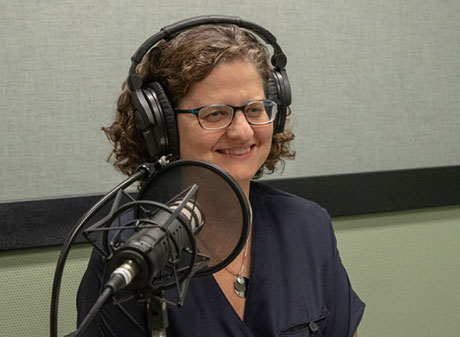Following Your Passion into Economics

Jane Ihrig
Math was Jane Ihrig’s initial passion, so much so that she always envisioned getting a Ph.D. in math and becoming a professor.
When she began her studies at Carnegie Mellon University, her math major required a humanities course each semester, so she took a shot at microeconomics. Then came macroeconomics. Then came more and more econ classes to fill the humanities requirement.
“By my junior year, I realized I was enjoying the applied math in those classes just as much as my math major,” Ihrig said.
Ihrig went on to major in both math and economics before pursuing her Ph.D. in econ, rather than math. These were among the first steps toward an economics career that saw her ultimately wind up working for the Federal Reserve Board of Governors.
In this Women in Economics podcast, Ihrig discusses her journey to the Fed. She talks about the importance of being mentored and of mentoring others.
She also notes how her daughter followed in her footsteps as a math major, but not as an economics major. It wasn’t for lack of trying. Her daughter took AP economics, and that was more than enough econ for her.
“But she is a math major and I think that will provide her with lots of opportunities going forward,” Ihrig said. “And I encourage everyone to follow what they’re passionate about.”
Additional Resources
- Women in Economics Symposium
- Women in Economics: Jane Ihrig
- Regional Economist: The St. Louis Fed’s Focus on Women in Economics
Citation
ldquoFollowing Your Passion into Economics,rdquo St. Louis Fed On the Economy, July 23, 2019.
This blog offers commentary, analysis and data from our economists and experts. Views expressed are not necessarily those of the St. Louis Fed or Federal Reserve System.
Email Us
All other blog-related questions

